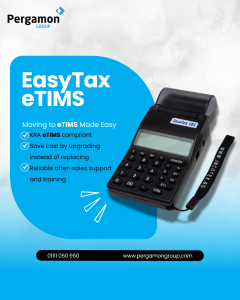
Starting January 1st, 2026, KRA is changing the game. They’re introducing the KRA 2026 Validation Framework which is a new system that will automatically check whether the income and expenses you declare on your tax returns match what’s in their records.
Think of it like this: KRA now has multiple sources of information about your business—your eTIMS invoices, import records, withholding tax details—and they’re going to compare everything. If things don’t add up, you’ll have some explaining to do.
Bottom line? If you’re not keeping proper digital records, 2026 is going to be a tough year.
Let’s be honest—many businesses have gotten away with “flexible” record-keeping. Maybe some cash sales here, a few expenses without proper receipts there. Those days are ending.
The good news? You have time to get ready. And it’s not as complicated as it sounds.
KRA will cross-check four main things:
Don’t panic. Here’s your action plan, broken down into simple steps:
Pro tip: Do a spot check right now. Pull up last month’s invoices and verify they went through.
If you import anything—stock, equipment, raw materials—match those imports to your expense claims. Get your paperwork in order:
Create a simple folder (physical or digital) for each import shipment.
Check that every withholding tax deduction is properly recorded. If you paid a contractor Ksh 50,000 and deducted Ksh. 2,500 as withholding tax, make sure both amounts are in your records and match what KRA has.
For every expense you want to claim:
If your supplier isn’t giving you proper e-invoices, have that conversation with them now.
Before filing your 2025 tax return, do a simple check:
If anything doesn’t match, fix it now rather than explaining it to KRA later.
Your accountant needs to understand this. Your sales team needs to understand this. Even your procurement officer needs to understand this. Have a simple meeting and make sure everyone knows:
Send a simple message to your regular suppliers: “Please make sure all invoices you send us are electronic invoices with our PIN captured.”
If you sell to businesses, let them know you’ll need their PIN for all invoices moving forward.
Your import records will be heavily scrutinized. Make sure customs declarations match your expense claims. Keep everything—bills of lading, customs forms, duty payment receipts.
All those monthly service fees you charge? Proper e-invoices with buyer PINs. All those maintenance contracts you pay for? Get proper e-invoices with your PIN.
Q: When exactly does this start? January 1, 2026. It will apply when you file your 2025 tax return.
Q: Does this apply to my small business too? Yes. Small, medium, large—everyone.
Q: What if I claimed an expense but don’t have a proper invoice? KRA can disallow that expense. You’ll pay more tax, plus potential penalties.
Q: Can I just wait and see what happens? You could, but why risk it? The businesses that prepare early will have the smoothest transition.
Q: Is KRA really going to check every single transaction? They’ll use automated systems to flag mismatches. So yes, potentially every transaction could be checked.
Look, we know change is hard. And dealing with KRA can be stressful. But here’s the thing—this validation framework is actually going to make life easier for honest businesses. Once you get your systems right, filing returns becomes straightforward. No more guesswork, no more anxiety about what KRA might find.
The businesses that struggle will be the ones that wait until the last minute or hope it won’t affect them.
At Pergamon Group Ltd, we’ve been helping Kenyan businesses stay compliant with KRA requirements for years. We provide:
The 2026 validation framework doesn’t have to be scary. With the right preparation and the right partner, you’ll be ready.
Need help getting your business validation-ready? Reach out to us. We’re here to make compliance simple.
Stay compliant. Stress-free, and in business.
Pergamon Group Ltd Your partner in navigating Kenya’s evolving tax landscape
Pergamon Group Ltd is your one stop shop for all your business ICT solutions. We specialize in a wide range of services including KRA APPROVED TIMs and eTIMs SOLUTIONS, point of sale solutions, security solutions, and banking and office equipment.
© 2026 pergamongroup • All Rights Reserved
WhatsApp us